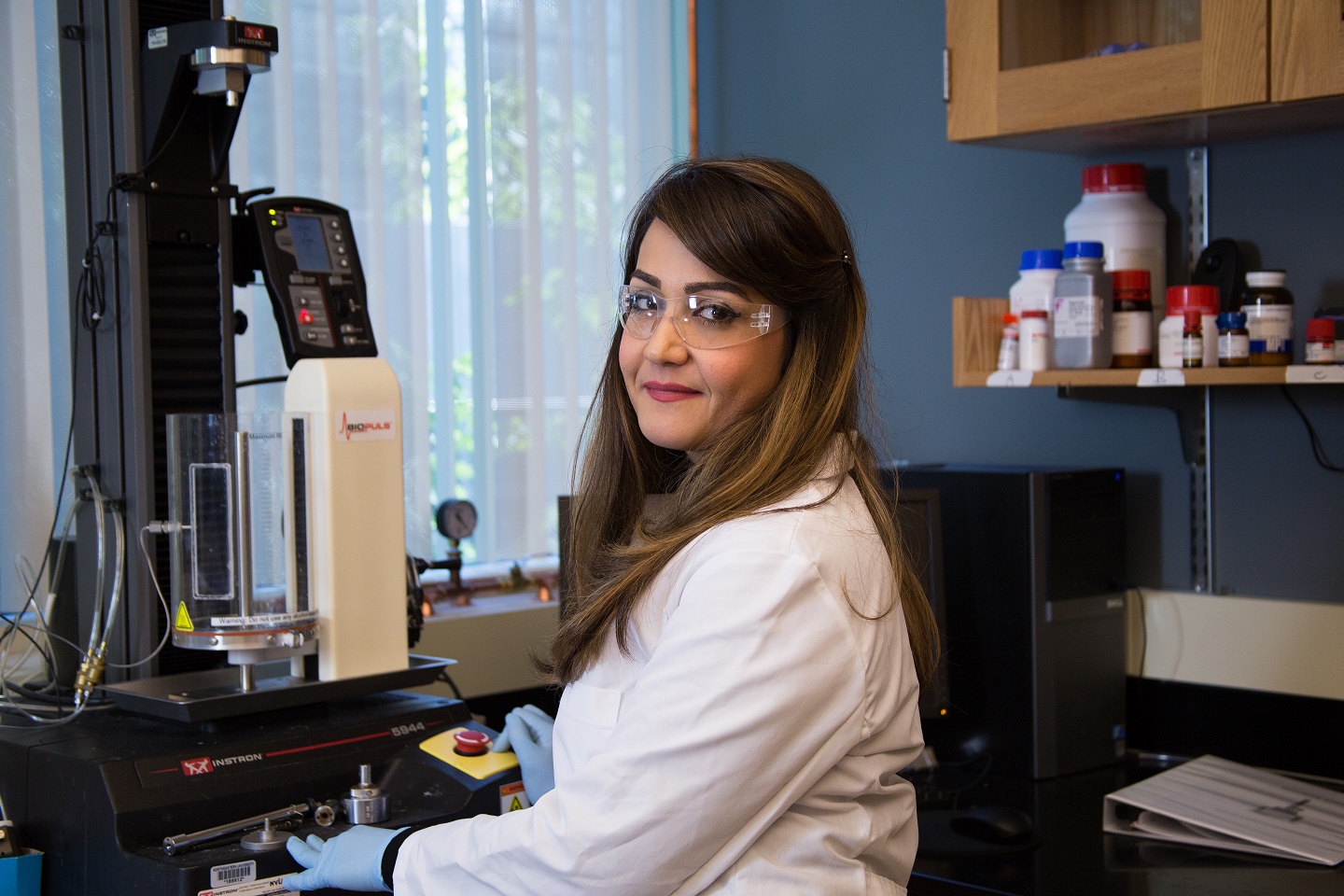Annabi Receives NIH R01 Grant

ChE Assistant Professor Nasim Annabi received a $2M R01 grant from the National Institutes of Health (2017-2022) for a project entitled "Engineering a naturally derived and highly adhesive surgical sealant". This project is focused on the development of a novel light-activated surgical sealant. The proposed surgical material can provide flexibility without compromising strength, and can adhere strongly to the native tissues to stop body fluid leakages during surgical procedures.
Approximately 114 million surgical and procedure-based wounds are created annually worldwide, including 36 million from surgeries in the US. Post-operative reconnection of tissues is crucial for restoring adequate function and structure. Sutures, wires, and staples are widely used for this purpose. Despite their common use in the clinic, these methods exhibit limitations when being applied to fragile and soft tissues. This is particularly important if the sealing is intended to prevent liquid or air leakage against high pressure, such as during vascular or lung surgeries. Additionally, these methods are time-consuming and their application can be technically difficult for minimally invasive procedures with restricted access. Various types of surgical materials have been used for sealing, and reconnecting tissues, or attaching devices to tissues. These surgical sealants/adhesives can be used as adjuvants to sutures to enhance closure, or can potentially replace them all together for rapid wound closure and improved clinical outcome. However, existing surgical sealant materials often display limited adhesive strength, toxicity, lack of appropriate mechanical compliance and importantly, have poor adhesion to the wet and dynamic environments in the body. Therefore, there is an unmet need to design and develop novel tissue adhesives/sealants that combine multiple critical characteristics and can outperform the current commercially available sealants.
“To address these challenges, we have created a multi-disciplinary team with clinicians and bioengineers from the Brigham and Women’s Hospital (BWH) and Beth Israel Deaconess Medical Center (BIDMC) at Harvard Medical School to design a highly versatile and efficient surgical sealant, which be can potentially utilized to close wounds without the use of sutures or staples,” Prof. Annabi remarks.
The NIH R01 fund will provide a unique opportunity for the team to further optimize the formulation and delivery of the proposed material in established large animal models. The obtained data from this project will form the basis for consideration of the first phase human trials toward the translation of this technology into products that can be used in the clinic.
Full Abstract: NIH